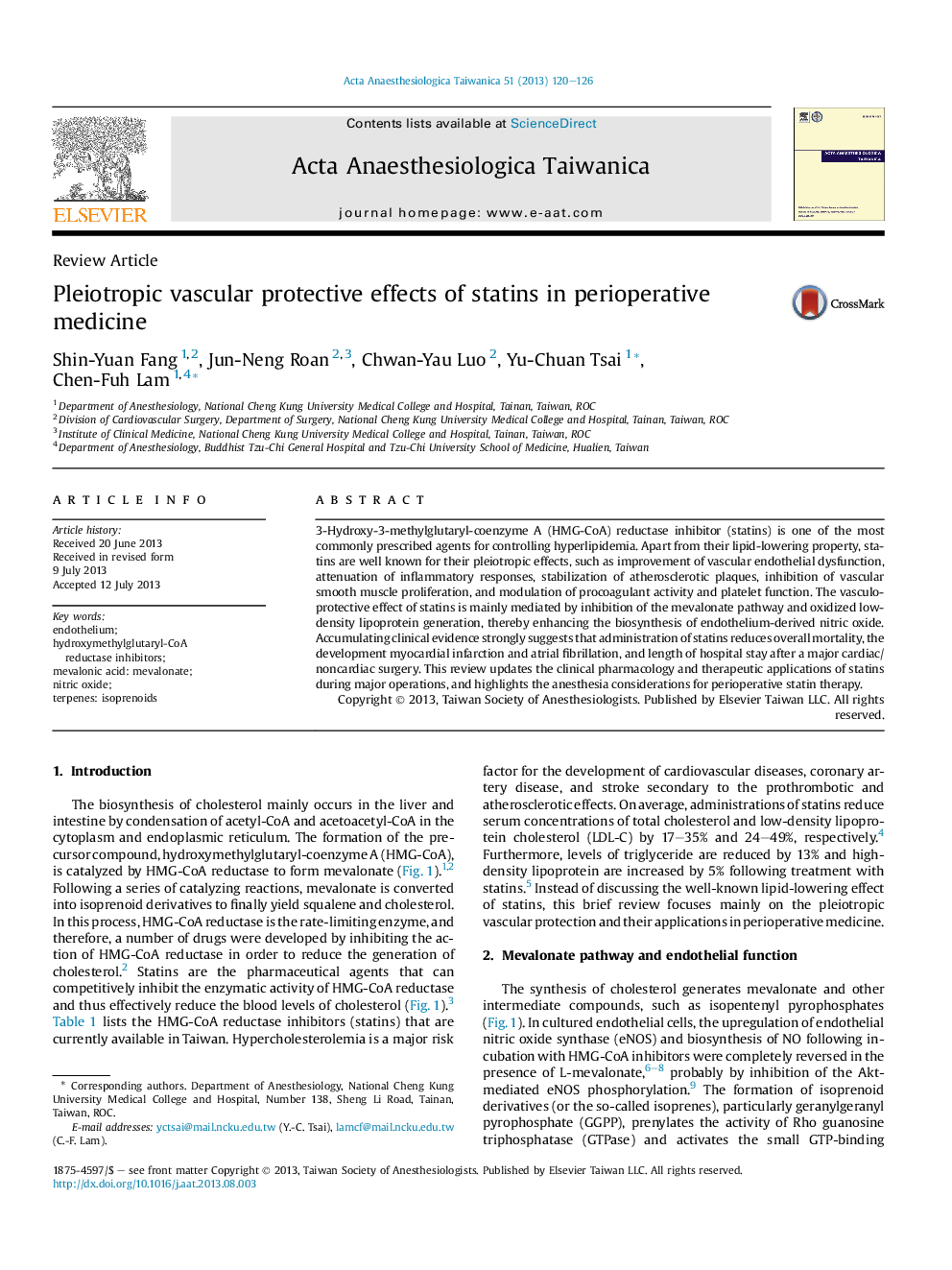| Article ID | Journal | Published Year | Pages | File Type |
|---|---|---|---|---|
| 2741477 | Acta Anaesthesiologica Taiwanica | 2013 | 7 Pages |
3-Hydroxy-3-methylglutaryl-coenzyme A (HMG-CoA) reductase inhibitor (statins) is one of the most commonly prescribed agents for controlling hyperlipidemia. Apart from their lipid-lowering property, statins are well known for their pleiotropic effects, such as improvement of vascular endothelial dysfunction, attenuation of inflammatory responses, stabilization of atherosclerotic plaques, inhibition of vascular smooth muscle proliferation, and modulation of procoagulant activity and platelet function. The vasculoprotective effect of statins is mainly mediated by inhibition of the mevalonate pathway and oxidized low-density lipoprotein generation, thereby enhancing the biosynthesis of endothelium-derived nitric oxide. Accumulating clinical evidence strongly suggests that administration of statins reduces overall mortality, the development myocardial infarction and atrial fibrillation, and length of hospital stay after a major cardiac/noncardiac surgery. This review updates the clinical pharmacology and therapeutic applications of statins during major operations, and highlights the anesthesia considerations for perioperative statin therapy.
